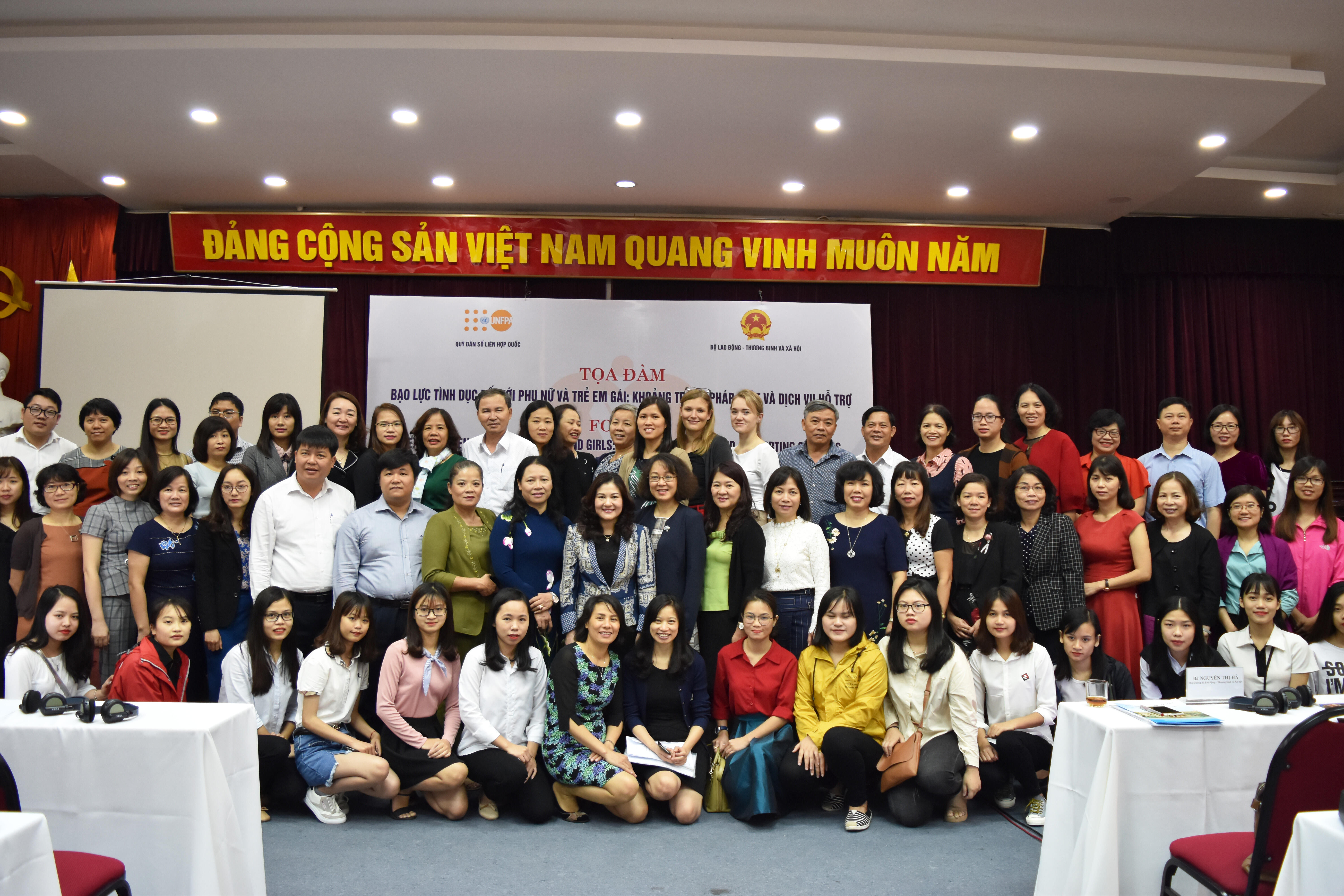Hanoi (VNA) – Women are more reluctant to report incidents of sexual assault against them and seek support than physical violence, Deputy Minister of Labour, War Invalids and Social Affairs Nguyen Thi Ha told a workshop in Hanoi on December 5.
The workshop, entitled “Sexual violence against women and girls: Gaps in legislation and supporting services”, was co-held by the Ministry of Labour, War Invalids and Social Affairs (MoLISA) and the United Nations Population Fund (UNFPA).
Though no specific studies have been published on violence against women and children in Vietnam, it is estimated that over 50 percent of women have experienced at least one form of violence – be it physical, sexual, and psychological violence – at some point in their lives. Violence against women and children come in many forms and occur in different spaces, from within the family to among the community.
Ha said Vietnam has taken many steps to ensure social welfare, protect human rights, particularly of women, and promote gender equality.
The MoLISA has set up community-based shelters, support centres, and gender equality consulting services for gender-specific violence victims. It has also promoted violence-free, friendly schools and safe cities for women and children to raise public awareness of the issue and reduce potential risks for women and children, she noted.
However, the deputy minister admitted that it is more challenging to tackle and intervene in sexual assaults against women and girls compared with other forms of violence, with victims often facing lengthy processes for their cases to be taken on or settled, which has further raised public discontent.
During the workshop, speakers discussed a range of violent acts against women and girls and exchanged views on policy gaps on the issues. They also talked about the support services available for sexual violence survivors in Vietnam and shared some of the best practices in preventing and responding to sexual violence against women and girls both at home and in foreign countries.
Do Thi Thu Ha from the UNFPA pointed out the fact that sexual violence and harassment are often viewed as a sensitive topic that is difficult to share and discuss in public. Furthermore, prejudices against victims of sexual abuse have prevented them from being fully supported, not to mention negative judgments they could face for speaking out or seeking justice.
She further noted that victims are often blamed for violent acts against them and people are often skeptical of what a victim has to say. Many turn their backs on victims, and as a result, these women and girls have been conditioned into believing that they themselves are responsible, she said, adding that this culture of victim blaming is a global concern, causing survivors of sexual violence to stay silent against their abusers.
To address the issue, participants suggested launching high-quality support services for victims that cover different aspects from healthcare and psychology to legal consultancy, and that these services must be friendly and easy to access.
They also stressed the need to change people’s attitude on gender-based violence, particularly sexual violence and harassment. At the same time, relevant governmental agencies must collect comprehensive national statistics on sexual violence against women and girls and improve the current legislation on this issue.–VNA


